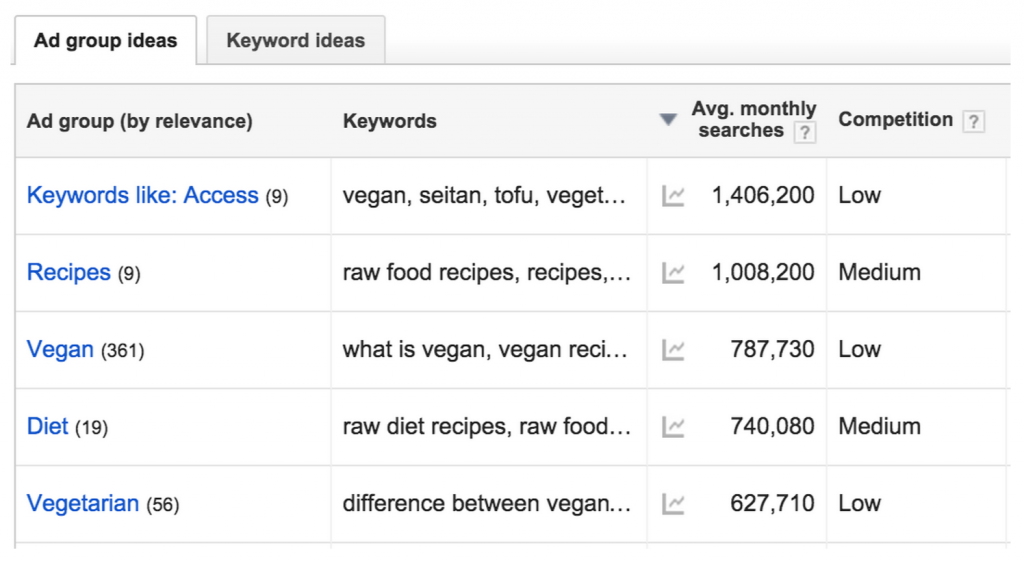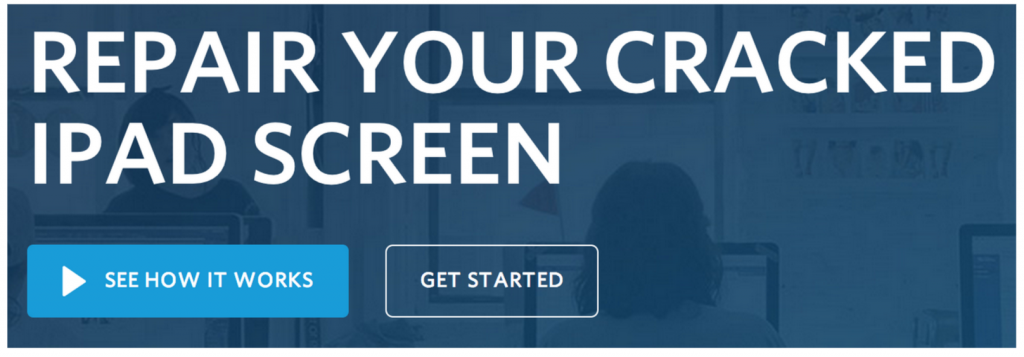 Markos Lemma Markos Lemma Africa is home to brilliant and innovative startups that continue to attract some large corporations such as Microsoft, Google, Nokia to name a few. Africa has myriad potential in the tech startup scene. Economies like Nigeria, Ghana, South Africa, Rwanda, Kenya and Ethiopia are home to some innovative startups that have gained global recognition and are continually attracting expatriates and the diaspora to accelarate economic growth and also contribute to the entrepreneurial and ICT sector. One of the continent’s most promising innovation hubs shaping and supporting startups in promoting social entrepreneurship is iceaddis based in Ethiopia. Markos Lemma, co-founder of iceaddis is speciliazed in ICT consultancy and community management. He is also an advocate for startup movements, social and environmental innovations and blogging. Markos organizes Barcamp Ethiopia annually which is the biggest tech community event. We sat down with Markos Lemma to discuss about Ethiopia’s innovation hub, the startup community and touch on some of the challenges but yet promising aspects of tech startups in Ethiopia. What is iceaddis? Iceaddis is an Ethiopian based innovation hub. Iceaddis which opened its doors in May 2011 aims at bringing both creative and brilliant innovators in Ethiopia to co-create and work together. The hub also aims to foster global partnerships and find markets for Ethiopian innovators, researchers, students, and entrepreneurs. A major objective of iceaddis is to support the technological ecosystem in Ethiopia and beyond. How does iceaddis support startups? Initially, the idea emerged as creating a platform to attract and support creative thinkers and innovators within Ethiopia. The platform is to facilitate these innovations into becoming viable businesses and promote Ethiopian innovations globally. We have created the entire project to have 4 pillars. There is the ”Startup Support,” which involves 12 weeks of entrepreneurship training, network mentoring and working with venture capital firms (VCs) for example VC4Africa. We call this the ”Pre-incubation” phase. There is also a ”Tech Support Community” in Ethiopia. Most of the tech communities are scattered throughout the country, hence there is no support system for these tech communities. We learnt for instance in Kenya, they started a hub, because of the existance of a tech community. Whereas in Ethiopia we have started to build these communities. We encourage and strengthen the existing communities by creating space for meetups, providing skills training and organizing bootcamps, barcamps and tech related events. We also enable them, to gain exposure to the international community. Additionally, we also initiate and contribute to dialogues involving decision on policy making and implementation within the startup ecosystem, the tech community and entrepreneurship in Ethiopia. Ultimately the aim is to support and promote these innovations. What are some of the challenges iceaddis faces? It has been a challenge from the beginning but we have managed to work for the betterment of the startup community. There are however ongoing challenges, that need to addressed. Mostly, these challenges lie within the network infrastructure. Due to the monopoly, unrealiability and pricy services of Ethiopia’s internet and telecom sector, most of the tech startups are struggling to cope. Ethiopia has the second lowest internet penetration rate in the world. There is a huge problem in the accessibility of information or financing within the network infrastructure. These challenges affect us as a hub and our stakeholders. Secondly, we face other challenges in terms of policies and regulations. There are some unfavoruable regulations for entrepreneurs or startups. For instance, tech companies or startups should have a physical registered space to operate. However, most of the startups within the mobile app industry do not neccessarily require a physical operating space. Due to these pressure, there is blockage in the lifecycle or expansion of some of the startups operations. Other regulation challenges involve requiring a special mapping permit from authorities. Mostly larger corporations or companies have access to these legislations. The final challenge is that the technology sector is not a driving force in the economic growth in Ethiopia. The construction and real estate are major booming sectors fetching foreign investments and direct capital. However there are not many financing sources and ventures for the technology sector. Luckily, in terms of funding, iceaddis has platforms for funding options. We work with various funding organizations who support different ideas and innovations. Iceaddis takes into account the private sector’s involvement, as it allows startup potential and longetivity. They use iceaddis as a gateway to the community. We are constantly looking for other collaborative ventures and partnerships. Do you see a potential in Ethiopia’s startup community driving economic growth? There is diversity in the startup community. There are several levels of expertise and engagements. Our community consist of ”Role models”; these are actually the doers with skills on marketing and attracting investors. These rolemodels serve as examples for the majority of the emerging startups community. This is an advantage, since there is a need for influencers to drive certain movements. I compare startups to movements. Hence, for every movement you need leaders and influencers. Ultimately, these movements also attract supporting stakeholders from the public sector , funding sector and other major cooperations. There’s no boom in Ethiopia yet, but there is huge potential with a population of 85 million and is an emerging market in Africa. The economic growth eventually will drive and shift the ecosystem to invest in creative and innovative ideas. Hence, there will be an increase in the number of startups in Ethiopia to help boost the economic growth. We are directly working with innovative and high quality startups/companies, so there is a positive outlook in general. There are alot of curving points, but we are on the right track. For more information about iceaddis visit http://www.iceaddis.com/ This is an originally posted by Sarah Laaru, Business Developer at Startup Commons. You are free to re-edit and repost this in your own blog or other use under Creative Commons Attribution 3.0 License terms, by giving credit with a link to www.startupcommons.org and the original post
JustCoded has officially become our global certified developer partner. From now, JustCoded will be able to offer its services for our National and Regional Partners, for our customers (organizations using the platform that are, universities, incubators, startup accelerators, business angel networks, startup event organizers, cities, etc.) for their customization and support needs. You can read more about our Certified Developer Program.
Here is an interview with Konstantin Boyko, CEO and owner of JustCoded. 1. What is JustCoded and why did you start it? JustCoded is a web development company based in Eastern Europe, which provides a wide range of services in PHP development and website building. We use MVC frameworks like Symfony 2, Yii framework and popular CMS solutions like WordPress, Drupal. JustCoded was initially started by 3 developers in 2007 and these days our team has around 30 people on board. Unlike many other PHP developers who try to avoid creating HTML/CSS themselves we always do full-cycle development and frontend/UI development is one of our strong sides. We value the quality of our work above all and attention to details is one of the most important things we want our developers to learn. We are always trying to build long-term partnerships with our clients. It could be both outsourcing/out-staffing relationships and direct contracts with business owners. 2. What is the most challenging part working for startup world? Startup ecosystem has a lot of different players in it and they all are very different. It takes some time to understand how things are working there, however it becomes more and more interesting when you know things deeper. When you do some development for a startup there is a big chance that you start building one product and finally deliver something completely different - startup ideas change faster than you can implement them. 3. When and why did you decide to join Certified Developer Program at Startup Commons? We joined Certified Developer Program in the beginning of 2014. It was interesting and challenging to become a part of global initiative and take part in the development of startup community system. Of course for our business the main benefit is bringing some work for our developers, but this is not the only reason - we hope that our experience will add some value to the product. 4. What are you working on together with Startup Commons? Startup Commons platform has global development roadmap which we try to follow as much as possible. Right now we are in the process of transition of the old platform to new and improved UI. At the same time we implement custom features requested by specific communities/customers. 5. What advice would you give to future developers starting out? I would say that the first thing you need to do at the beginning is to understand the business logic - otherwise you’ll quickly be confused with something. You can’t develop the system without understanding how things work in startup world and once you know that things become much easier for development as well. Join us to build the world’s largest online platform and community to manage and measure startup ecosystems As Marc Andreesen famously wrote, market need is more important to early startup success than team or even product. So before you go out and start coding, here are 5 fast ways to test your startup idea is even worth pursuing in the first place #1 – Are people interested? Check with Google and Facebook There are some great free tools that can help you gauge interest in a category in order to start a business. For example – Google trends tells us organic food is declining in search volume, whereas vegan food is on the rise: Digging into the details, the Google keyword tool tells us there are a high number of searches in the US for vegan seitan, tofu and more, yet according to Google there is low advertiser competition – that is, less people bidding to appear with those keywords. A low advertiser competition can sometimes signal potential – a consumer demand with little competition from suppliers. And using Facebook’s free ad manager can tell you size of demographic segments, for example those between 21 and 55 years old in the US who are interested in Wellness related topics (64 million people). #2 Ambush focus groups There is no substitute for talking to real users, but it’s easier said than done. Before starting your startup you need feedback so you can validate the idea. But friends rarely give you honest/negative feedback and response rates for unsolicited emails are abysmally low. However it’s easy to speak to potential users – go to a place there are a lot of them in one place, waiting. #3 Put up a simple landing page and A/B test the message It takes literally under an hour to register a domain, buy a landing page template and customize it so it looks like a real service. Once it’s up you can then integrate an A/B testing services like Optimizely or VisualWebsiteOptimizer (they both are great products with free trials) and create variations of the messaging or title. vs You can then submit the site to various forums or on social media (Product Hunt, Hacker News etc) asking for feedback, and see which proposition results in the most interest and activity on the site, as measured by click rates on the call to action buttons.
This A/B testing can help you test different concepts and messaging in parallel, and see out of them which has the most potential to consider moving forward with. #4 Compare what’s out there today Many startups are so enamoured with their idea they forget to check what’s out there already (or has been tried before). On the flipside, new opportunities can be found by looking at bad experiences. #5 “Feedback-ify” your MVP If you’ve done all those steps and the startup idea has survived, the confidence factor is a lot higher to proceed. Once you’ve created a minimum viable product, now matter how rough, now’s the time to get as much feedback as possible. The best ways to do that are through statistics packages like Flurry which will tell you what is happening, and in-app / web survey tools like polljoy that will tell you why: what users think about your product. Both of these tools are free, and the qualitative and quantitative data will start to give an answer on if your concept has legs and ready to take to the next step. ___________________________________________________________________________________________ This is an edited version of a post originally posted at https://polljoy.com/blog/, by Simon Newstead, who is entrepreneur and angel investor, with a passion for the mobile and gaming space. Simon is currently the CEO and Co-Founder of Frenzoo, and Co-Founder of polljoy. You are free to re-edit and repost this in your own blog or other use under Creative Commons Attribution 3.0 License terms, by giving credit with a link to www.startupcommons.org and the original post. Are you interested in entrepreneurship and you cannot find a proper idea? This blog post might help you to come up with some of them. #1 Review Kickstarter to see which ideas are most heavily funded. Check out the top funded Kickstarter projects. Which projects are getting the most crowd funding? What types of concepts / industries are most popular? This gives you a good idea of where consumer demand is beginning to well up. You can filter by category and by region to dial down into specifics. #2 Review Reddit forums where people post about things they want to buy. Reddit is a treasure trove for idea hunters. There are subforums on Reddit dedicated exclusively to people who are asking for new businesses to get started so they can pay money immediately. Here are some places to go looking for ideas: /r/SomebodyMakeThis - Cool business ideas shared by Redditors who don’t have the time or skills necessary to pursue the ideas themselves. /r/ShutUpAndBuildThis – Redditors clamor for cool products that they want built today. Top ideas currently include: glow-in-the-dark USB ports, cameras that you can throw, and Plinko-style Piggy banks. /r/AskReddit/what_is_the_worst_product – A summary of terrible products that are super popular. Invent something better. /r/DoesAnybodyElse – Redditors empthasize over common, but non-obvious annoyances, frustrations, and private quirks. Make things to solve their problems. /r/Austin – Review the subreddit of your local city and see what common questions & complaints arise. Replace “Austin” with the name of your hometown. #3 Do a Twitter search for the phrase: “does anyone know how to” I think this phrase is tweeted a million times a day. It’s basically people asking for a ready-made solution to a probelm. Read through a bunch of tweets and you’ll start seeing some key themes surface — you’ll also get a few good laughs. #4 Check out ideas from visionaries
#5 Look within your own life for problems to solve. What problems or annoyances do you experience every day? Do you think anyone else has a similar problem? How could you solve the problem? #6 Solve problems that your friends and family are having. Pay attention during conversations with friends and be observant. What complaints come up repeatedly? What struggles are they having in their social life, their family life, and their work life? What do they want to learn or wish they knew how to do? #7 Ask your friends and family what business idea they think you should pursue. Maybe your friends notice something that you missed about yourself. Maybe they have a great idea but don’t have the time or know-how to pursue it. #8 What 2-3 skills are you great at already that you can teach to others? You might already have a skill that people are dying to pay for. Don’t overlook this. Things that come easy to you might be super difficult for other people. #9 Customize a popular item like iPhone, Kindle, Toms shoes, etc Millions of people, for example, have covered, stickered, painted and even bedazzled their iPhones. People love to personalize and protect their possessions. Use that to your advantage and create a business. #10 Search the Craigslist gigs section and find people who want to spend money to solve a problem. Look for recurring requests. Example search: Austin Craigslist – Gigs for Pay #11 Review your friends’ Facebook & Twitter feeds to to find common complaints. Seth Godin wrote a blog post about how great ideas are everywhere and easier than ever to find now on social media. You just need to see the “idea on a string” and execute. I agree. Take a look at your Facebook and Twitter feeds and make note of what your friends are complaining about. There’s likely a great business idea in there. #12 Copy ideas that are already validated There is no need to guess on business ideas when there are proven winners already out there. Use these resources to help find existing products that have been validated by strong sales: Get inspiration from Udemy courses that sell well. Make a product for which people are willing to pre-pay at Things I Want Made. Search through the top selling information products on Clickbank. #13 Read 2-Star & 3-Star Reviews on Amazon If you’re thinking about writing a book or creating / reselling a physical product, do some research on Amazon. Find the category that’s closest to what you’re doing, then find the most popular products in the category and read their 2-star and 3-star reviews.
This type of info can all be found in those critical 2-star & 3 -star reviews. Why 2-star and 3-star reviews? Because that’s typically where people put the most helpful and constructive criticisms. 4 & 5 star reviews are usually just glowing with praise. 1 star reviews are usually just brief slams of the product. #14 Repackage a popular “how to” blog post as a service These are all step-by-step articles on how to do things that businesses are willing to pay for. Bookmark articles like these, master the material, and then offer it as a service to any business. Most businesses don’t want to hire a full time employee to do this at a cost of $5,000+/month and most of their existing employees will be too busy, too stubborn, or too lazy to try a new marketing technique. Ryan Luedecke has a post about how to make your first $1,000 on Reddit Ads. Bryan Harris has detailed how to get your first 100 email subscribers. Noah Kagan has explained how to profitably advertise on Facebook. The WarriorForum has a post that spells out exactly how to write sales copy that converts. Jakub Linowski has written a great article about how to design websites that convert. BRYAN HARRIS (VIDEOFRUIT) – Definitely worth a visit as Bryan already has a premade list of 50+ amazing “how to” posts you can use to start your business. #15 Remove a step from an existing process Take any process in your day-to-day work or personal life . List out every single step. Figure out a way to remove a step in the process. That’s a business. Examples:
What can you do? Here are some examples:
#16 Solve the world’s biggest problems Use CDC data, for example, to identify the most prevalent diseases & ailments in the US. Are there natural treatment options available that are effective, yet considered non-traditional or poorly marketed? The ketogenic diet, for example, has proven effective at curing some forms of cancer, yet chemotherapy is a far more popular & expensive treatment choice and statistically less effective. Review the most common social, political, economic, and environmental issues in the world. Can you create a product or service that helps to address one issue? If a problem seems too massive to solve, focus your efforts locally instead of globally. If creating a product is too complicated, can you repurpose something that already exists? Soylent, for example, is a meal replacement beverage in the US. It could potentially be repurposed to help fight hunger during natural disasters or other emergencies. Are you a consultant or an entrepreneur? - Learn more about Growth Academy Online Training & Certification Programs Download our startup booklet and watch our videos to learn more about our framework to help startups to grow without "reinventing the wheel" and without wasting lot of time trying to connect the dots. The framework is based on the startup development phases and aims to remove the highest universal risks on the startup journey. _________________________________________________________________________________________
This is an edited version of a post originally posted at http://ryanluedecke.com/, by Ryan Luedecke.You are free to re-edit and repost this in your own blog or other use under Creative Commons Attribution 3.0 License terms, by giving credit with a link to www.startupcommons.org and the original post. |
Supporting startup ecosystem development, from entrepreneurship education, to consulting to digital infrastructure for connecting, measuring and international benchmarking.
Subscribe for updates
Startup ecosystem development updates with news, tips and case studies from cities around the world. Join Us?Are you interested to join our global venture to help develop startup ecosystems around the world?
Learn more... Archives
December 2023
Categories
All
|
- Startup Commons
- Business Creators
-
Support Providers
- About Support Providers
- Learn About Startup Ecosystem
- Startup Development Phases
- Providing Support Functions
- Innovation Entrepreneurship Education
- Innovation Entrepreneurship Curriculum
- Growth Academy eLearning Platform
- Certified Trainers
- Become Growth Academy Provider In Your Ecosystem
- Growth Academy Training On-Site By Startup Commons
-
Ecosystem Development
- About Ecosystem Developers
- What Is Startup Ecosystem
- Ecosystem Development
- Ecosystem Development Academy eLearning Platform
- Subscribe to Support Membership
- Ecosystem Operators
- Development Funding
- For Development Financiers
- Startup Ecosystem Maturity
- Case Studies
- Submit Marketplace App Challenge
- Become Ecosystem Operator
- Digital Transformation
- Contact Us
- Startup Commons
- Business Creators
-
Support Providers
- About Support Providers
- Learn About Startup Ecosystem
- Startup Development Phases
- Providing Support Functions
- Innovation Entrepreneurship Education
- Innovation Entrepreneurship Curriculum
- Growth Academy eLearning Platform
- Certified Trainers
- Become Growth Academy Provider In Your Ecosystem
- Growth Academy Training On-Site By Startup Commons
-
Ecosystem Development
- About Ecosystem Developers
- What Is Startup Ecosystem
- Ecosystem Development
- Ecosystem Development Academy eLearning Platform
- Subscribe to Support Membership
- Ecosystem Operators
- Development Funding
- For Development Financiers
- Startup Ecosystem Maturity
- Case Studies
- Submit Marketplace App Challenge
- Become Ecosystem Operator
- Digital Transformation
- Contact Us







 RSS Feed
RSS Feed

